To celebrate scientists and scientific advancements, we have collected a list of the most famous British scientists that will inspire us for the greater good.
Did you know that a Brit was the first person to discover the planet Uranus? Or that one of the most influential figures in the history of biology was a British scientist?
These are just two examples of the many amazing scientists from Britain over the years. And when you start learning about them, you’ll realize that there are many more to discover.
Today we’re going to delve into the lives of famous British scientists. We will learn about their backgrounds, achievements, and contributions.
For credibility, we used only reliable sources such as biographies and encyclopedias.
Table of Contents
Famous British Scientists
#22. Anne McLaren (1927-2007): The Lady Who Pioneered In Vitro Fertilization
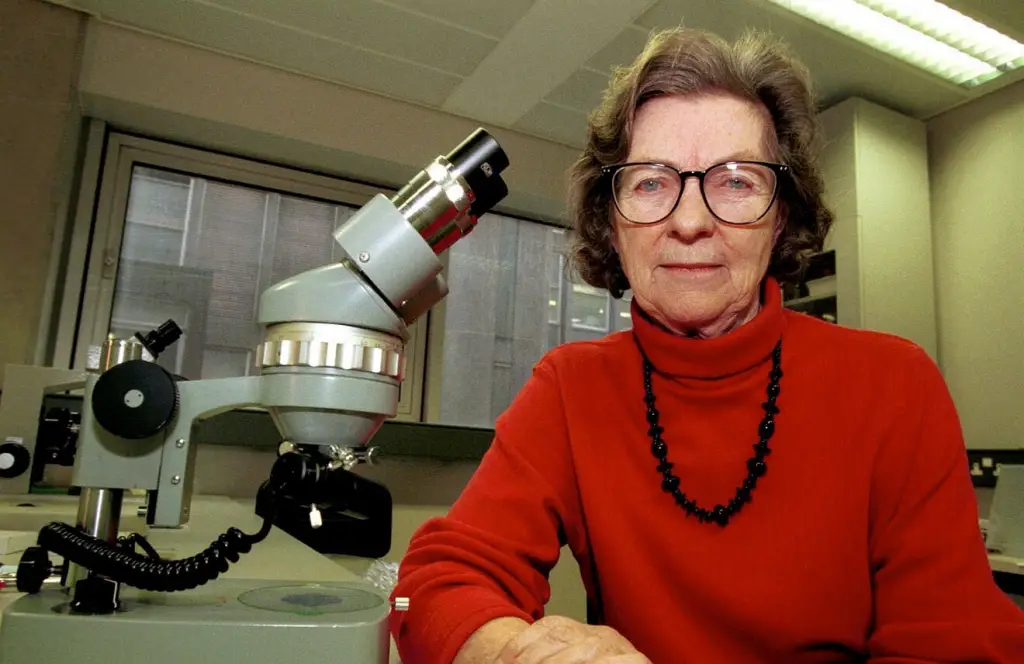
What makes Anne McLaren famous?
Anne McLaren was a British geneticist born in England on April 26, 1927. She studied at Oxford University.
McLaren is best known for her groundbreaking research in developmental biology. Her most notable contribution to science was the discovery of the role played by DNA in embryonic cell differentiation and development. This work gave rise to in vitro fertilization (IVF), which has successfully helped people to have children.
For her work in science, McLaren received the Royal Prize and became a fellow of the Royal Society.
[Source: Encyclopedia Britannica]
#21. J.B.S. Haldane (1892-1964): One of The Fathers of Medical Genetics
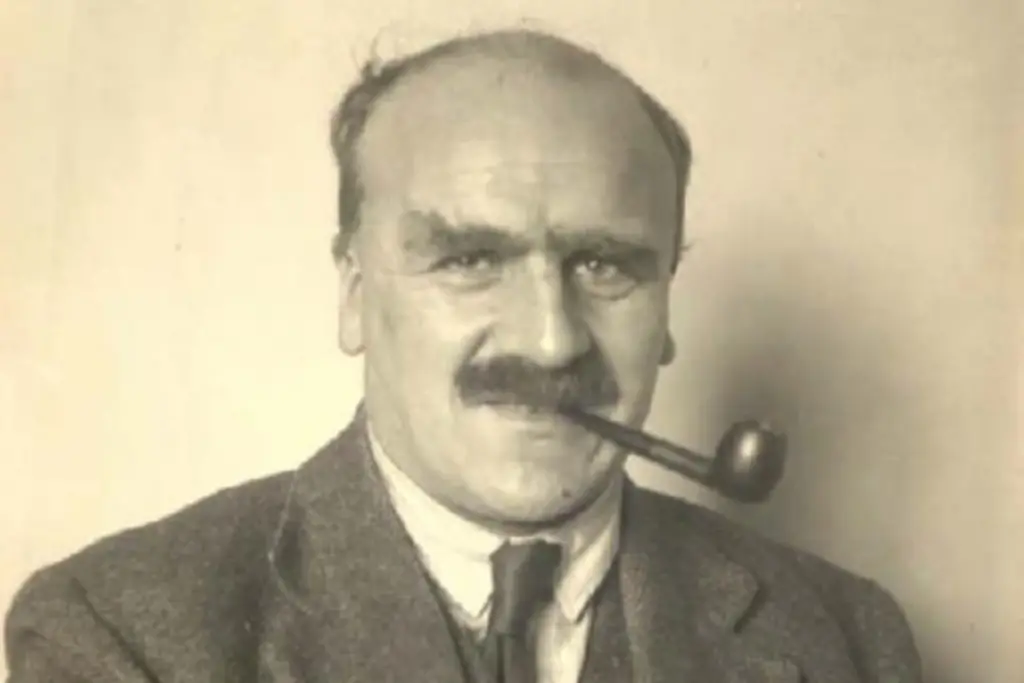
What makes J.B.S. Haldane famous?
John Burdon Sanderson Haldane was born in Oxford, England, on November 5, 1892, to a Scottish father and mother.
He began his career in Britain before moving to India to work for the government. Haldane is known for making gene maps for hemophilia and color blindness on the X chromosome.
In addition to being a leader in in vitro fertilization, he was also one of the first people to suggest that sickle cell disease might help protect against malaria in some way.
Haldane also described gene linkage in mammals. This is the idea that certain traits are inherited together. It happens because they have been passed down by genes that are located close together on chromosomes.
Haldane’s revolutionary work in genetics led him down a path toward a better understanding of evolution itself. He saw this quest as necessary to understand how humans fit into the world around them.
His research also helped doctors develop new ways to treat diseases like hemophilia and blood cancer that are passed down from parent to child.
What’s the best J.B.S. Haldane quote?
“This is my prediction for the future: whatever hasn’t happened will happen, and no one will be safe from it.”
[Source: Encyclopedia Britannica]
#20. Dorothy Hodgkin (1910-1994): Nobel Laurate

What makes Dorothy Hodgkin famous?
Dorothy Mary Crowfoot Hodgkin was an Egyptian-born British chemist who won the Nobel Prize in chemistry in 1964 for her research on the structures of important biochemical substances.
Hodgkin’s research was mostly about figuring out how complex molecules are put together by looking at how they bend X-rays. She solved a number of important problems about the structure of proteins, such as those about penicillin and vitamin B12.
Hodgkin won the Nobel Prize in chemistry and was made a fellow of the Royal Society. She also got a lot of honorary degrees from universities all over the world.
What’s the best Dorothy Hodgkin quote?
“I was captured for life by chemistry and by crystals.”
[Sources: Encyclopedia Britannica, The Nobel Prize ]
Similar Articles:
- 30+ Famous Life Scientists That You Should Know
- 16 Famous Korean Scientists That You Should Know
- 16 Famous Shark Scientists That You Should Know
#19 Richard Dawkins (1941-Present): The Outspoken Atheist Who Revolutionized Evolutionary Biology
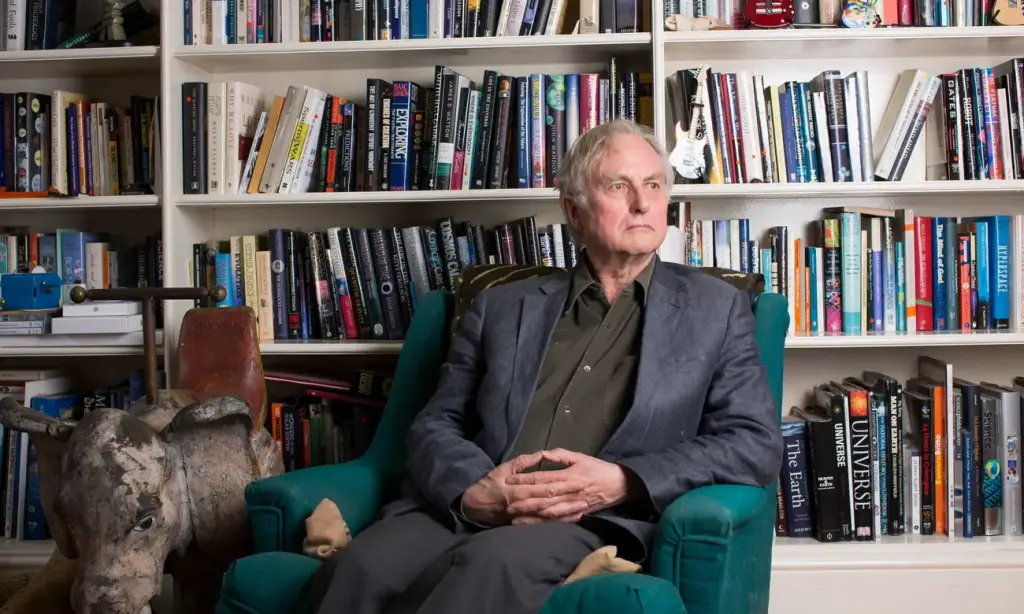
What makes Richard Dawkins famous?
Richard Dawkins was an English biologist who studied evolution. He is best known for coming up with the gene-centered theory of evolution. He popularized this concept through his book, The Self Gene.
His text, The Extended Phenotype, explores how natural selection works at different levels. He has also written several books for general audiences: The Blind Watchmaker, The God Delusion, and A Devil’s Chaplain.
As part of the New Atheist Movement, Dawkins doesn’t believe God created the world. He often criticizes religious beliefs as being “anti-science.”
His outspokenness on this issue has made him controversial among many religious people who believe he is attacking their beliefs without good reason or evidence to back up his claims.
[Source: Encyclopedia Britannica]
#18. Thomas Henry Huxley (1825–1895): Darwin’s Bulldog
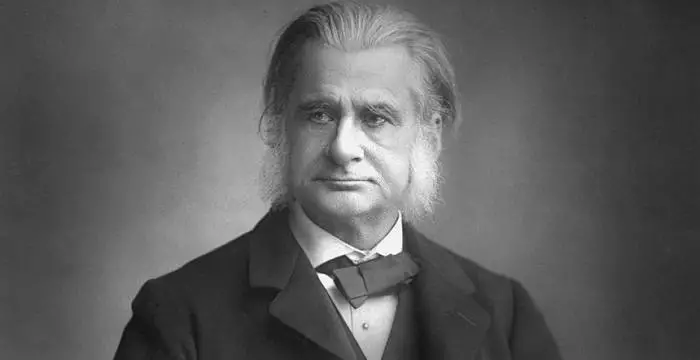
What makes Thomas Henry Huxley famous?
Thomas Henry Huxley was an English biologist whose fame came from popularizing Darwinism. Because he defended Darwin’s famous theory of evolution by natural selection, people called him “Darwin’s bulldog.”
Huxley is best known for his expertise in comparative anatomy. His lifelong research focused on the anatomy and physiology of invertebrates.
[Source: Encyclopedia Britannica]
#17. Alexander Fleming (1881-1955): The Discoverer of Penicillin

What makes Alexander Fleming famous?
Alexander Fleming is best known for finding penicillin, but his career and scientific contributions were much more complex.
Born in Ayrshire, Scotland, in 1881, Fleming was a Scottish physician who graduated from St. Mary’s Hospital Medical School. He was also an avid scientist, with a particular interest in bacteriology.
Fleming made no important scientific contributions until 1928, when he returned from vacation to find that a mold had contaminated one of his Petri dishes containing staphylococci.
This helped him figure out that penicillin was an antibiotic that could kill bacteria without hurting people.
In 1945, Alexander Fleming, Ernst Boris Chain, and Howard Florey won the Nobel Prize in Physiology or Medicine for their work on penicillin.
[Source: The Nobel Prize]
Similar Articles:
- 14 Famous Vietnamese Scientists That You Should Know
- 15 Famous Filipino Scientists That You Should Know
- 15 Famous Sleep Scientists That You Should Know
#16. Robert Hooke (1635-1703): England’s Leonardo Da Vinci
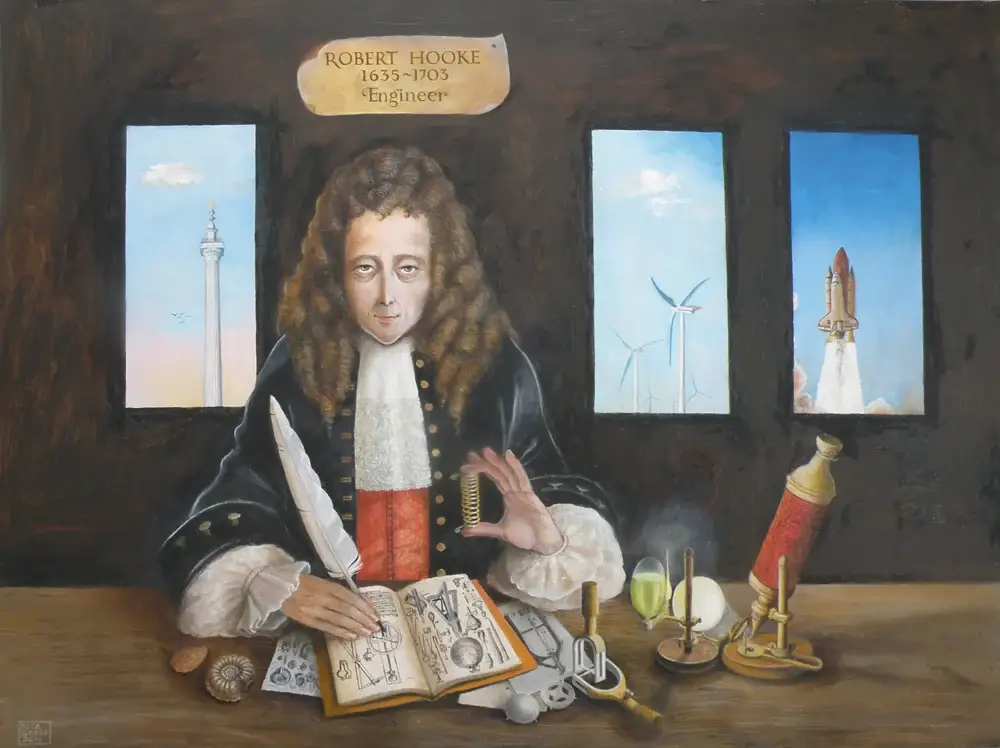
What makes Robert Hooke famous?
Robert Hooke was a true polymath. He is best known as one of the first people to observe microorganisms through a microscope. He was also a great architect and engineer. He built some buildings in London, including St. Paul’s Cathedral, during his lifetime.
Hooke’s scientific work focused on many fields, including archaeology, astronomy, and biology. He made several important contributions to the development of modern science. Hooke is often thought of as one of the people who started microscopy. He spent so much time studying tiny organisms.
Robert Hooke also came up with the term “cell” during his microscopic studies.
[Source: Encyclopedia Britannica]
#15 Francis Crick (1916-2004): DNA Structure Co-Discoverer
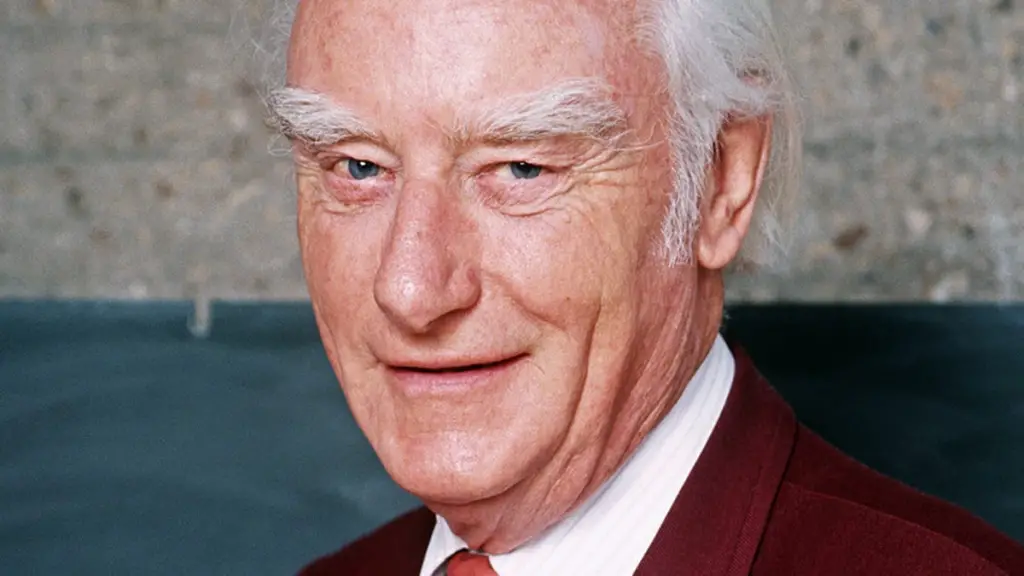
What makes Francis Crick famous?
Francis Crick (an English molecular biologist) is known as one of the individuals who discovered the exact structure of DNA, along with James Dewey Watson.
While employed at the University of Cambridge, the pair became friends. They won the Nobel Prize for science in 1962 because of what they had done.
Francis Crick is still one of the best scientists of all time, despite what he thinks about how the universe began.
What’s the best Francis Crick quote?
“Chance is the only source of true novelty.”
[Source: Encyclopedia Britannica]
#14. William Herschel (1738-1822): The Artist Who Discovered Uranus
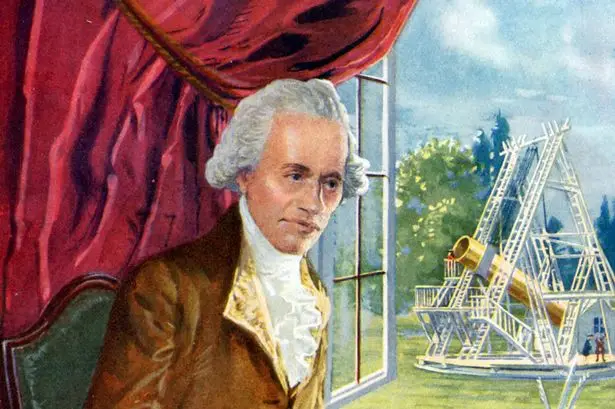
What makes William Herschel famous?
William Herschel was a man who loved the night sky.
He was born in Hanover, Germany, in 1738 but moved to Great Britain when he was still young. Herschel was a leader in the field of astronomy, especially in spectrophotometry.
His work with infrared radiation paved the way for further study of the Sun’s spectrum, which allowed scientists to figure out how hot it was and determine that it had a yellowish tint.
Herschel discovered Uranus and its moons—Oberon and Titania—which were previously unknown objects. He also discovered two moons of Saturn: Mimas and Enceladus. These discoveries were huge steps toward understanding our solar system as a whole.
What’s the best William Herschel quote?
“Seeing is, in some respects, an art, which must be learnt.”
[Source: Space.com]
Similar Articles:
- 16 Famous Muslim Scientists That You Should Know
- 20+ Famous Buddhist Scientists That You Should Know
#13. James Prescott Joule (1818-1889): English Physicist Who Found the Mechanical Equivalent of Heat.
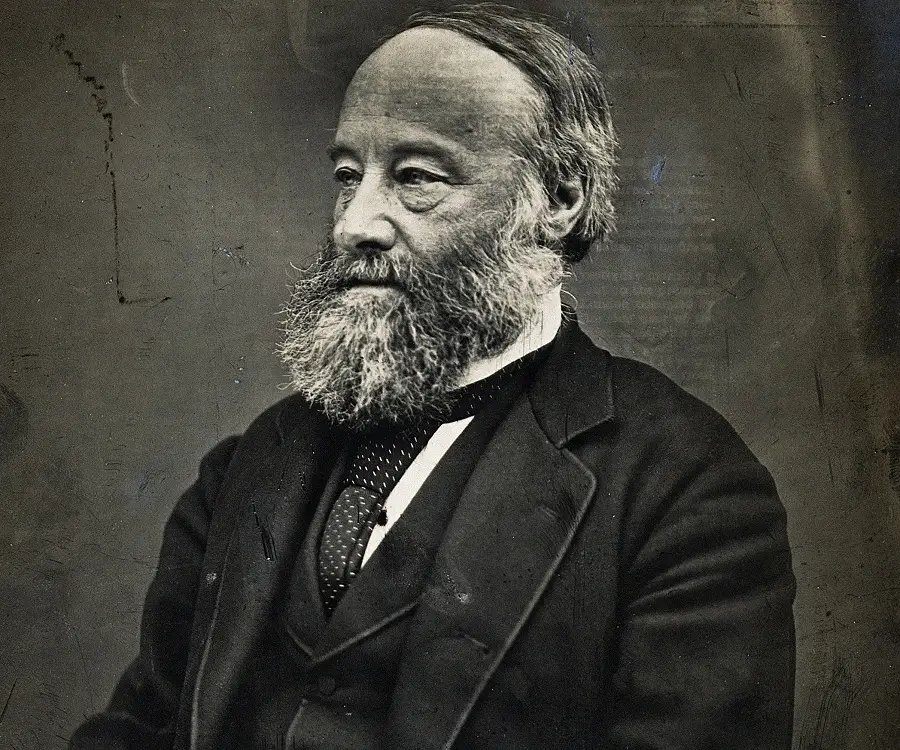
What makes James Prescott Joule famous?
James Prescott Joule was a man of many talents, and his accomplishments in mathematics and the scientific world were just as impressive as his contributions to the brewing industry. Born in Salford, Joule’s major contribution to science came after he discovered what became Joule’s Law. This discovery led to the law of conservation of energy and the first law of thermodynamics.
His religious beliefs influenced his discoveries in this field. As a Christian scientist, he believed in humility and God’s will.
[Source: Encyclopedia Britannica]
#12. Edward Jenner (1749-1823): The Father of Immunology
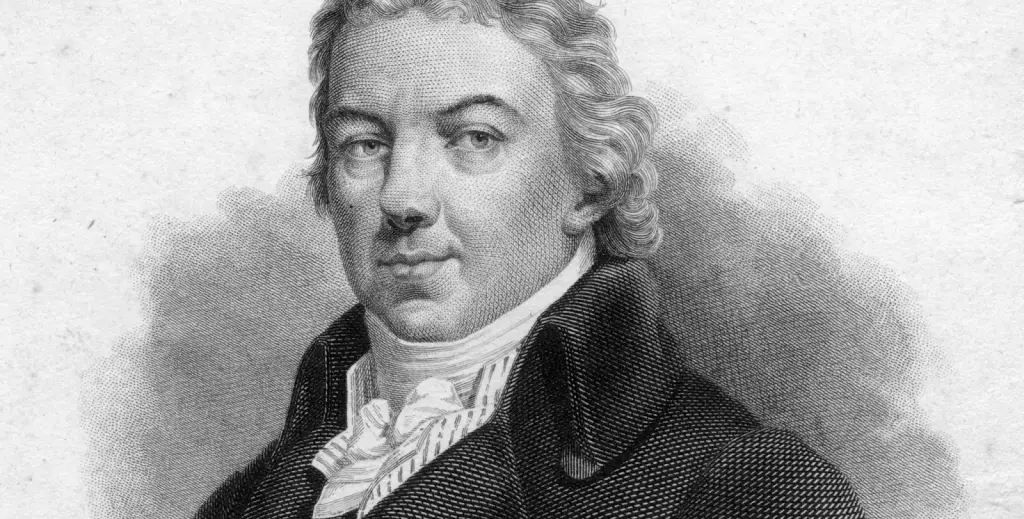
What makes Edward Jenner famous?
The origin of the word “vaccination” is actually a bit of a mystery. Some say it comes from the Latin word Vacca, which means “cow.” This term was used by people who vaccinated their cows to protect them from disease.
Edward Jenner was a British biologist known for his contributions to this field. His work on the smallpox vaccine was the first to show that vaccination was a good way to keep people from getting sick. This led to widespread adoption across Europe and South America during his lifetime.
His work also paved the way for other developments in immunology, like vaccines against measles, diphtheria, tetanus, yellow fever, and influenza.
[Source: Encyclopedia Britannica]
#11. James Chadwick (1891-1974): Father of Modern Physics
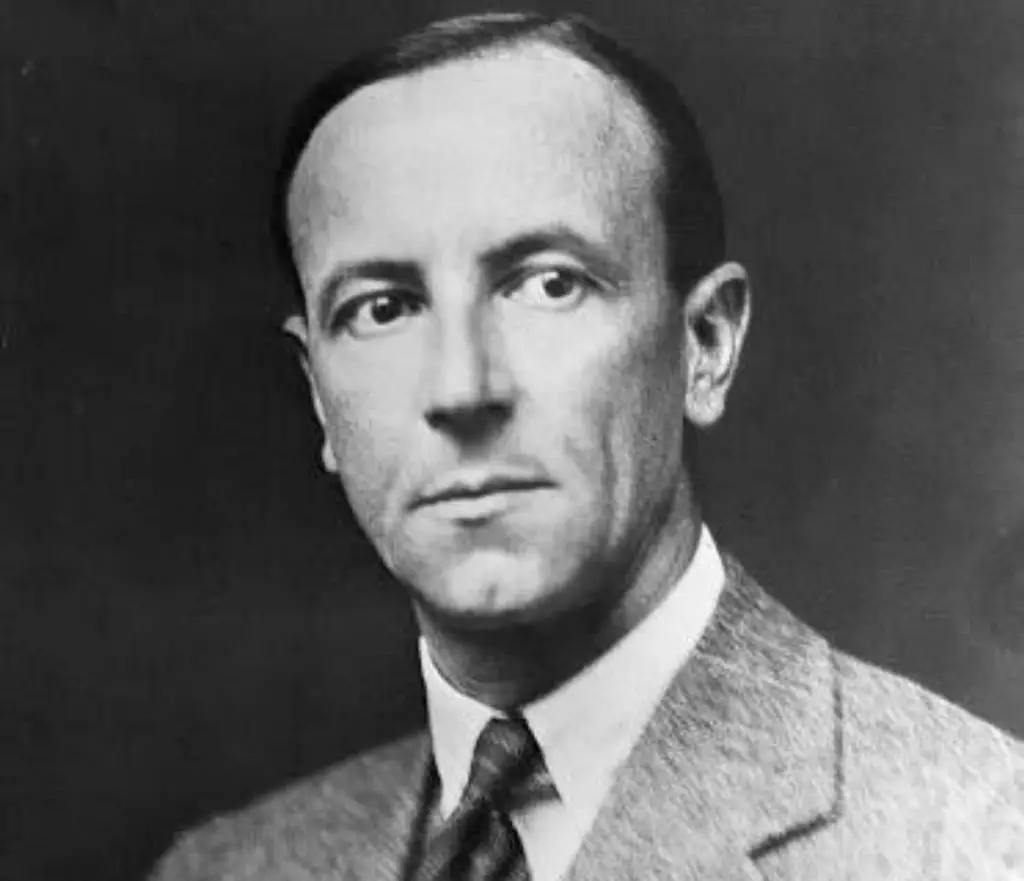
What makes James Chadwick famous?
Chadwick was a British physicist and one of the most influential scientists to come out of Britain. Students, teachers, and researchers in all areas of science still talk about what he did for physics.
For example, his work on the MAUD Report influenced the United States government’s decision to pursue atomic weapons during World War II.
He discovered the neutron, which revolutionized atomic physics. He even earned the Nobel Prize for this achievement.
[Source: The Nobel Prize]
Similar Articles:
- 20+ Famous Hispanic Scientists That You Should Know
- 20+ Famous Black Scientists That You Should Know
- 20+ Famous Female Scientists That You Should Know
#10. Frederick Sanger (1918-2013): One of The Foremost Experts in DNA Sequencing
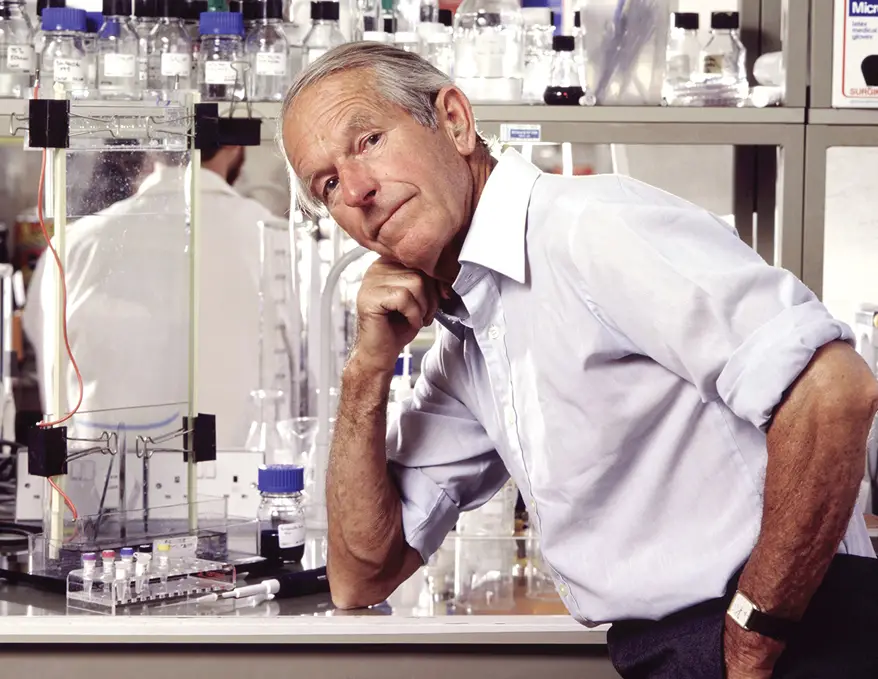
What makes Frederick Sanger famous?
Fredrick Sanger was a British scientist who was known for his work on understanding how proteins and nucleic acid sequences work.
He remains the only person to win two Nobel Prizes in Chemistry, one in 1958 for his work on protein structures and another in 1980 for his work on nucleic acids.
What’s the best Frederick Sanger quote?
“Scientific research is one of the most exciting and rewarding of occupations.”
[Source: The Nobel Prize]
#9. Michael Faraday (1791-1867): The Father of Electricity

What makes Michael Faraday famous?
Born in England, Michael Faraday was the first to propose that electricity and magnetism are related. He made this discovery in 1831 when he found that a magnet could affect the current of electricity.
Faraday discovered electromagnetism while experimenting with magnetic fields to understand how electricity worked.
He also developed the concept of induction (also known as electromagnetic induction). This explains how mechanical motion could generate electricity. It was an important discovery because it meant there was no need for batteries anymore.
Faraday did important research in the chemical sciences and discovered benzene. In the same field, he made the first Bunsen burner, which is used to study gases. Although Faraday struggled with dyslexia, he went on to earn the 1902 Nobel Prize for his contributions to physics.
What’s the best Michael Faraday quote?
“But still try, for who knows what is possible?”
[Source: University of Houston]
#8. Arthur Eddington (1882-1944): The Physicist Who Made Einstein Famous
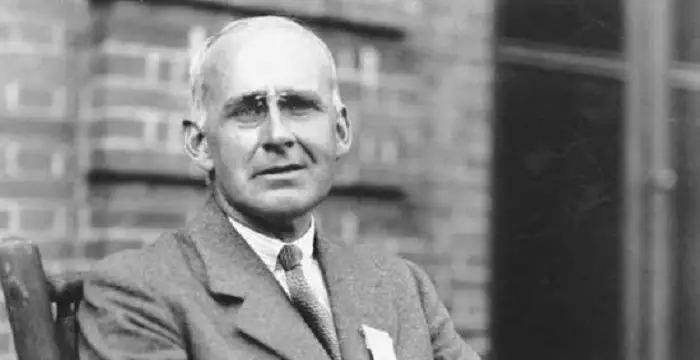
What makes Arthur Eddington famous?
If you’re a science nut like me, you probably know that the stars aren’t fixed—they move! And this movement is due to their own gravity, which causes them to pull on one another.
Born in England, Arthur Stanley Eddington is best known for being the first scientist to study the stars, including their motion, structure, and evolution. He also retested the theory of relativity proposed by Albert Einstein.
Eddington lived as a Quaker, as he grew up in a devout Christian family who loved science just as he loved religion.
[Source: Encyclopedia Britannica]
#7. Joseph Lister (1827-1912): Father of Modern Surgery
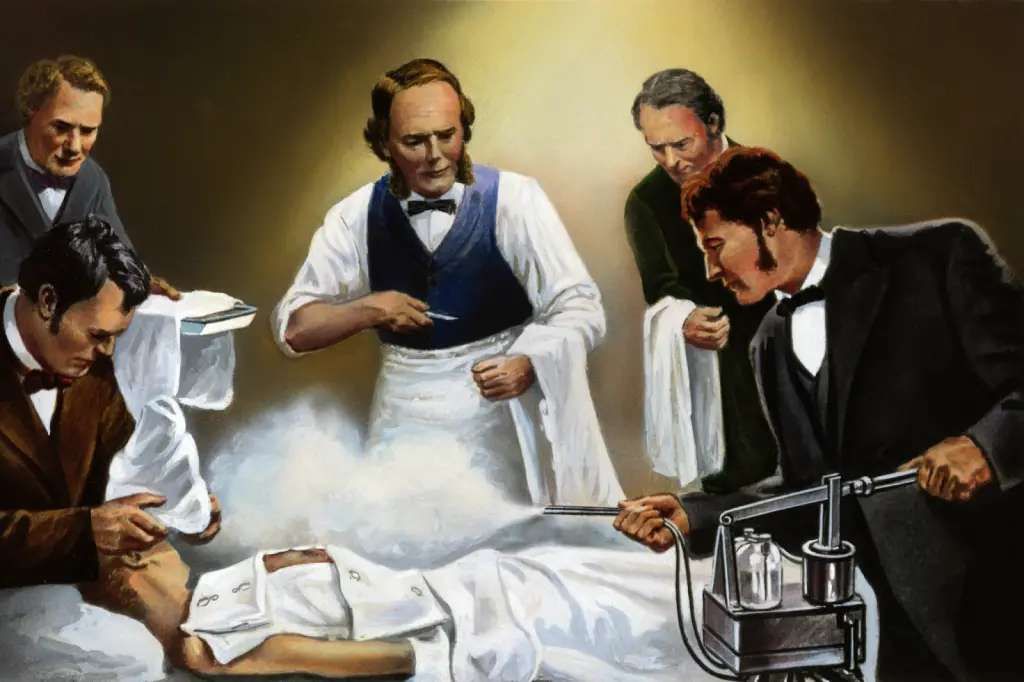
What makes Joseph Lister famous?
Joseph Lister wasn’t just a great surgeon—he was also a member of the Christian Science church.
Born in 1827, Lister grew up in West Ham, a small town east of London. He went on to become one of Britain’s most celebrated surgeons, with a lasting legacy that includes his work on sterilizing surgical equipment and his invention of the antiseptic paste known as carbolic acid (which is still used today as phenol).
Lister’s greatest legacy, however, may be his contribution to the field of surgery. He was the first medical scientist to use germ theory during surgery. In other words, he discovered how germs cause disease and used this knowledge to help prevent it.
[Source: National Library of Medicine]
#6. Charles Darwin (1809-1882): The Father of Evolution
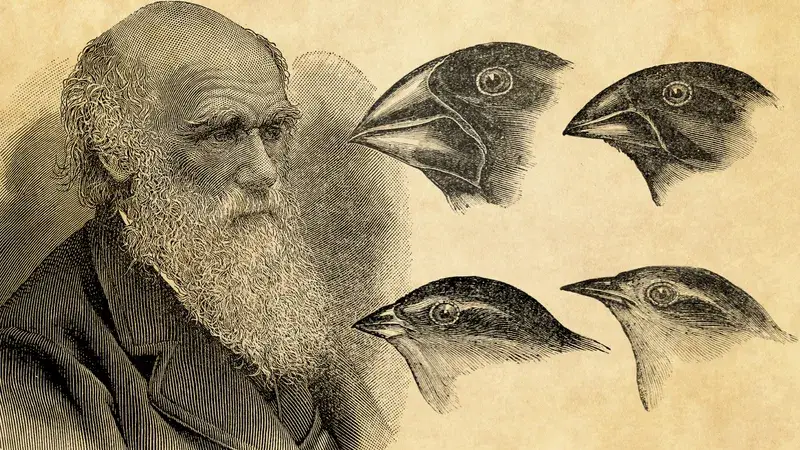
What makes Charles Darwin famous?
Charles Darwin was an English biologist, geologist, and naturalist. He contributed significantly to evolutionary biology through his theory of natural selection.
This theory states that individuals best suited to survive and reproduce will pass on their genes to future generations, while those less fit will not succeed as well as others. The result is that certain traits become more common over time because of this process of natural selection.
Darwin believed that all living things originated from one ancestor. He also wrote On the Origin of Species, which became one of the most influential books ever written on evolution—and it still is today.
What’s the best Charles Darwin quote?
“It’s not the strongest of species that survive, nor the most intelligent, but the one most responsive to change.”
[Source: Encyclopedia Britannica]
#5. Ernest Rutherford (1871-1937): Father of Nuclear Physics and Nuclear Chemistry
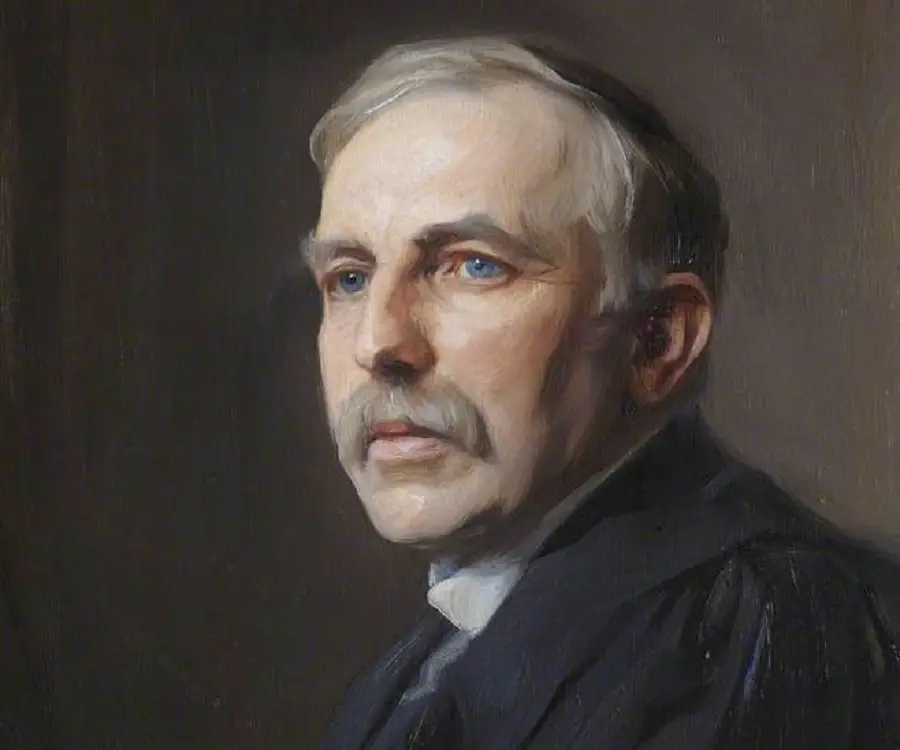
What makes Ernest Rutherford famous?
Ernest Rutherford was one of the most famous scientists in history. He was born in 1871 in Brightwater, New Zealand, but later became a British citizen.
Rutherford was a nuclear physicist who conducted experiments on radioactivity and discovered that matter breaks down into smaller pieces over time. He won the Nobel Prize for his work on radioactivity in 1908, becoming the first person to win it from an Oceanian country.
Ernest Rutherford’s most notable contributions include discovering that alpha and beta radiation were two different kinds of particles and that they both had different half-lives (alpha particles have a longer half-life than beta particles).
What is the best Earnest Rutherford quote?
“If your experiment needs statistics, you ought to have done a better experiment.”
[Source: The Nobel Prize]
#4. Timothy J. Berners-Lee (1955-present): The Inventor of The World Wide Web

What makes Timothy Berners-Lee famous?
Tim Berners-Lee is a computer scientist born in London in 1955. He attended school at Emanuel School and then went on to earn a BA in physics at The Queen’s College in Oxford.
Berners-Lee is best known for creating a way for computers to communicate with each other over networks using simple commands. This invention has led to many new ways of using computers and changed how people use the internet daily.
This computer science expert was also one of the founders of Europe’s first global hypertext information system, now known as HTML (HyperText Markup Language). This system includes things like “hyperlink,” which lets you put links in documents on web pages.
Berners-Lee, through his foundation, The World Wide Web Foundation (WWWF), continues to work on improving how people interact with technology.
Berners-Lee, through his foundation, The World Wide Web Foundation (WWWF), continues to work on improving how people interact with technology.
What’s the best Timothy Berners-Lee quote?
“The Web does not just connect machines; it connects people.”
[Sources: Encyclopedia Britannica, WWWF]
#3. Stephen Hawking (1942-2018): One of the Scientists Who Contributed to Our Understanding of the Universe

What makes Stephen Hawking famous?
Stephen Hawking was a British theoretical physicist who made an indelible mark on the world. He was born in 1942 in England and is best known for his work in theoretical physics.
He contributed to the study of the universe by focusing on its origin and structure, which continues to appeal to millions worldwide.
In addition to being a brilliant scientist, Stephen Hawking was also an avid writer. His books continue to appeal to millions of readers globally.
Hawking had Amyotrophic Lateral Sclerosis. This nervous system disorder affected his muscles responsible for speech, movement, breathing, and eating.
What’s the best Stephen Hawking quote?
“Intelligence is the ability to adapt to change.”
[Source: Read and Spell Blog]
#2. Sir Isaac Newton (1642-1727): The Man Who Formulated The Laws of Motion
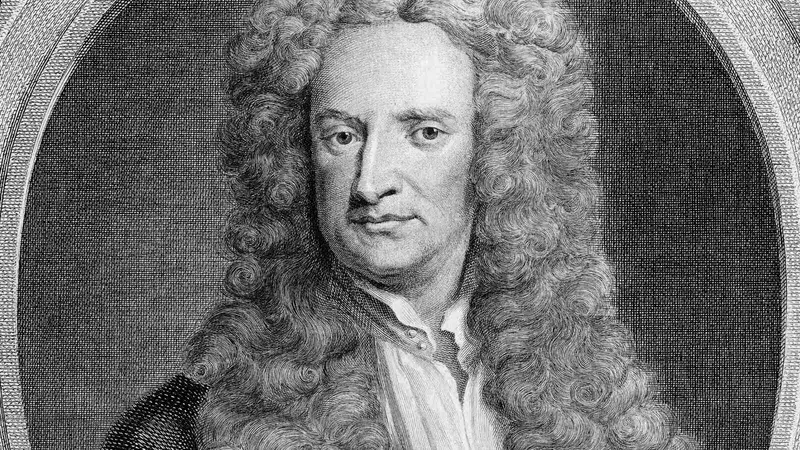
What makes Sir Isaac Newton famous?
Sir Isaac Newton was an English scientist and mathematician. He is best known for his contributions to astronomy, physics, and optics. His works spanned the entire 18th century.
His contributions to astronomy were enormous. He proposed that the Earth is an oblate spheroid. His invention of the reflecting telescope helped study the solar system.
Newton’s laws of motion were crucial in understanding how objects move on Earth. For these discoveries and more, Sir Isaac Newton is one of the scientists who founded modern physics, astronomy, and mathematics.
What’s the best Sir Isaac Newton quote?
“What we know is a drop, what we don’t know is an ocean.”
[Source: Encyclopedia Britannica]
#1. Alan Turing (1912-1954): The Father of Modern Computer Science
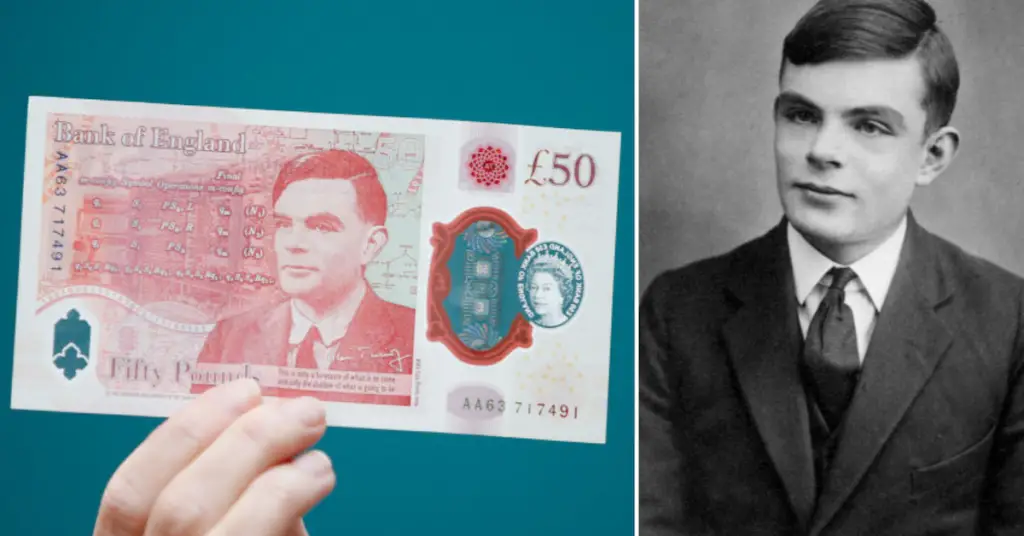
What makes Alan Turing famous?
Alan Turing is dubbed the “father of computer science.”
You may have come across someone saying something is “Turing complete.” The term implies that it can be programmed to perform virtually any task.
You may have also heard of the Nobel Prize for Computer Science. That’s right. It’s the Turing Award.
Finally, the 50-pound banknote: If you have seen the movie “Enigma,” you will realize that Turing was instrumental in winning the information warfare during WWII against Nazi Germany.
Born in 1912 in Maida Vale, London, Alan Turing was educated at Sherborne School in Dorset and then attended King’s College, Cambridge, where he studied mathematics as an undergraduate.
After getting his Ph.D. in mathematics from Princeton University in 1948, he worked at Manchester University’s Computing Machine Laboratory. Here, he contributed to research on machine learning algorithms and artificial intelligence.
In his paper on “Computing Machinery and Intelligence,” Turing described how machines could think (albeit incorrectly) through their ability to solve problems according to rules.
Turing also came up with the idea of a Universal Turing Machine (UTM), which is still an important theoretical concept in computer science.
Turing joined the Government Code & Cypher School, where he worked on radar systems for Britain’s war effort during World War II. During this time, he was responsible for breaking the German Enigma codes used by German forces during WWII. This gave the allies significant advantages.
Turing is not just remembered for his groundbreaking work in mathematics and computer science—he’s also known for being the first gay man to have his face on a banknote in the United Kingdom.
Alan Turing faced persecution by the government due to his sexuality. These woes may have led to his death in 1954.
What’s the best Alan Turing quote?
“Sometimes it is the people no one imagines anything of who do the things that no one can imagine.”
[Sources: Encyclopedia Britannica, Stanford Encyclopedia of Philosophy]
Final Thoughts
The names on this list are some of the most famous and influential British scientists. They have helped shape our modern world. Their work and discoveries have changed every part of life, from technology and medicine to food and fashion.
We hope this has been informative, educational, and entertaining—and that you’ll take what you’ve learned here and apply it to your life. If you enjoyed this post, please share it with your friends and family.

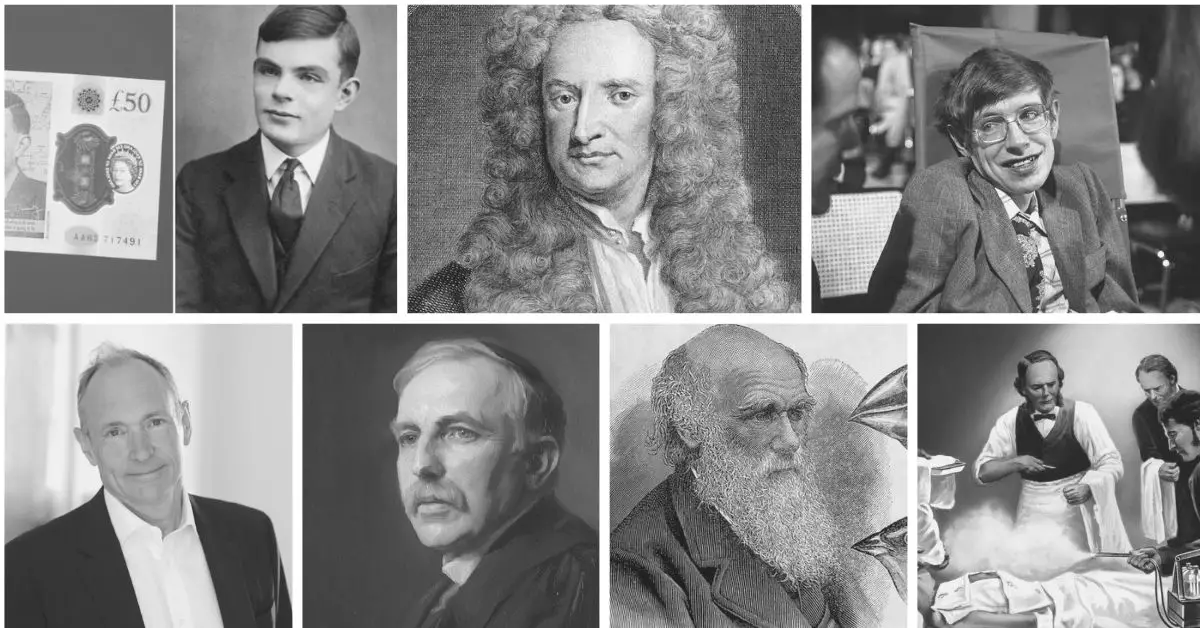

This has been verry helpful. Thannk youuu
Thank you for the kind words.